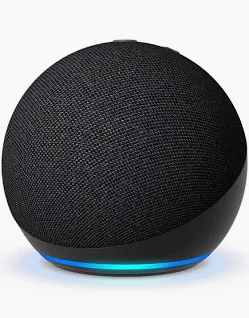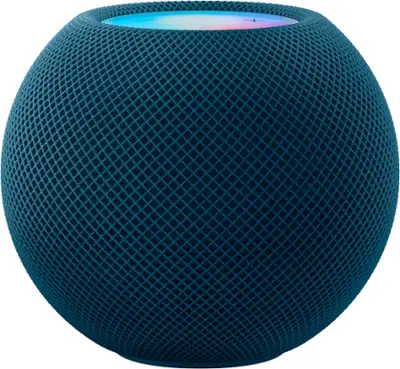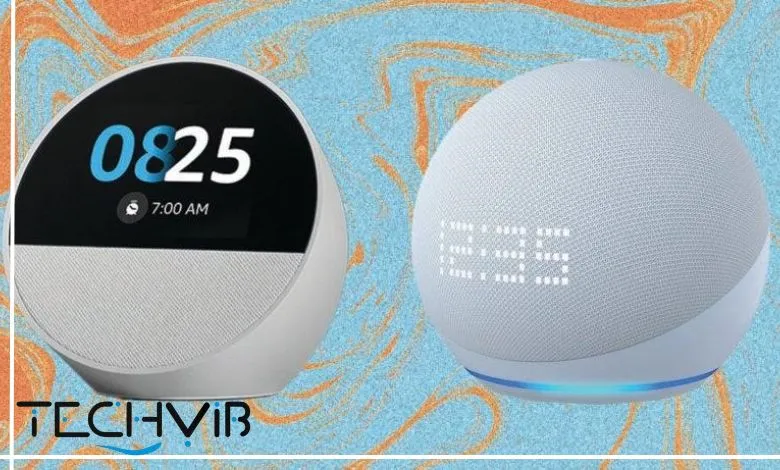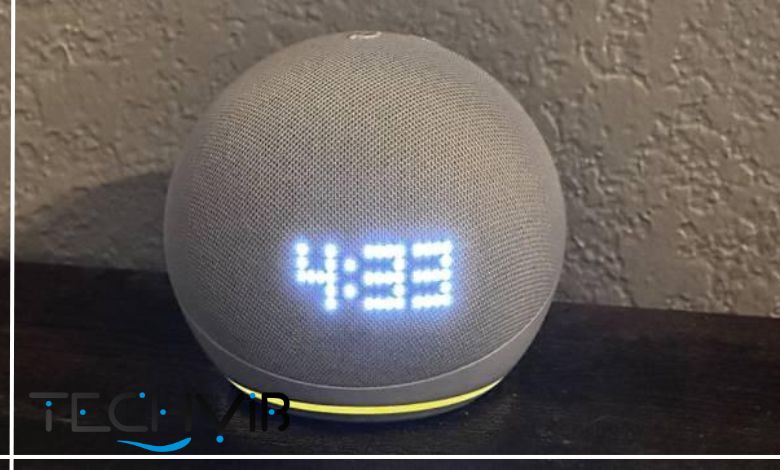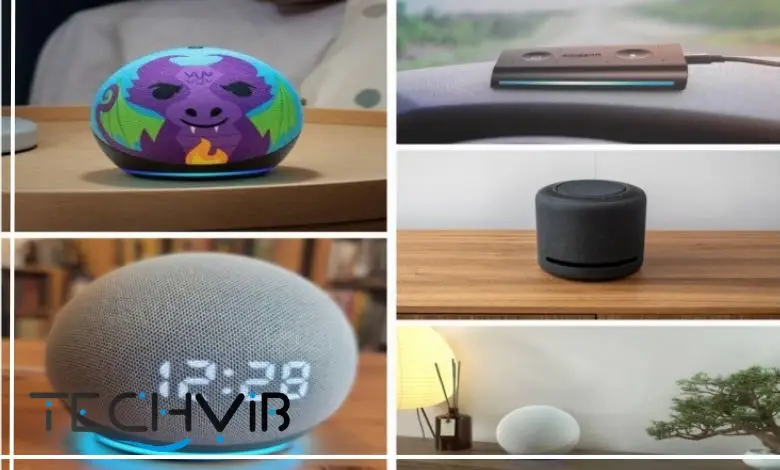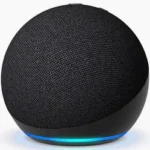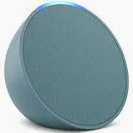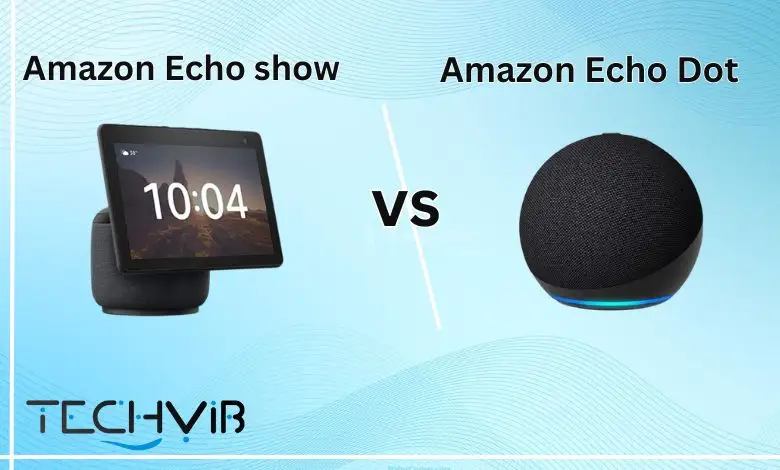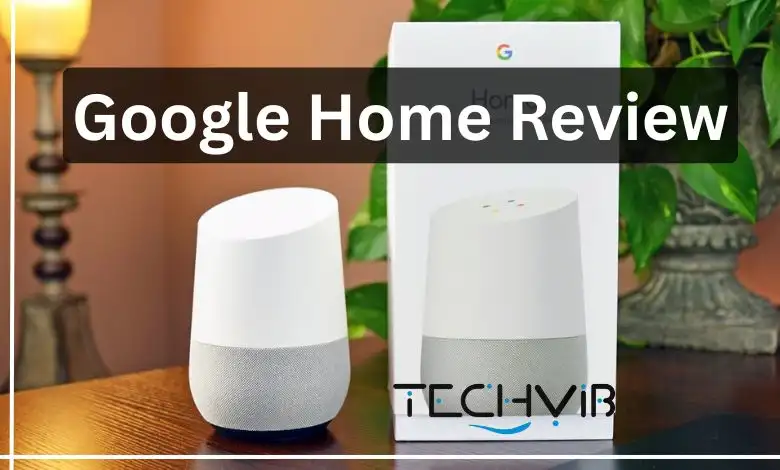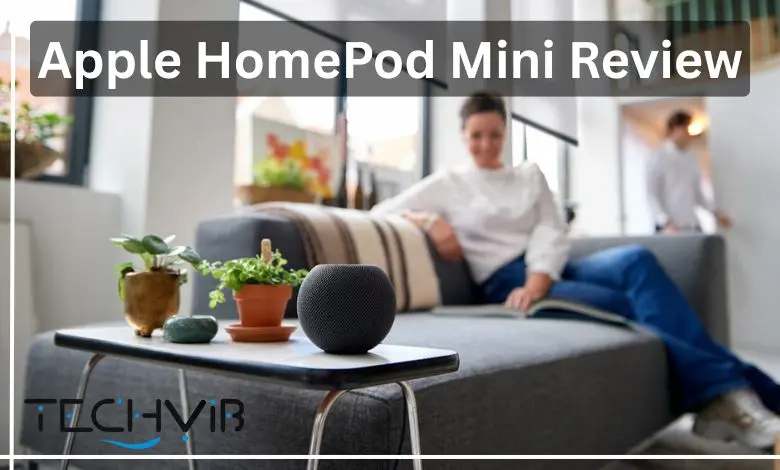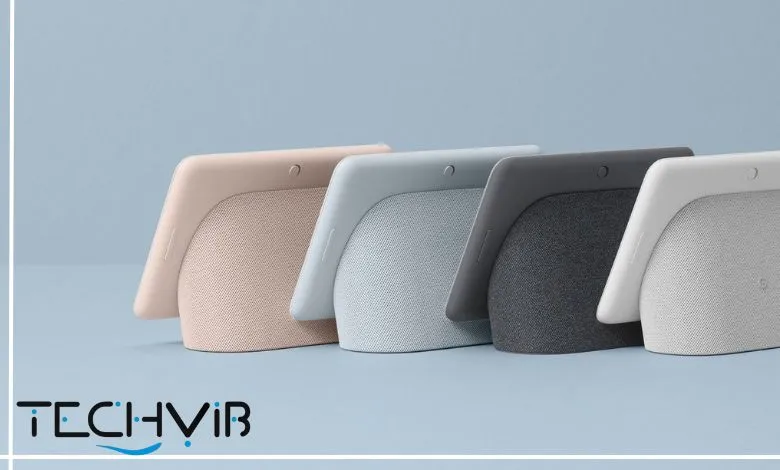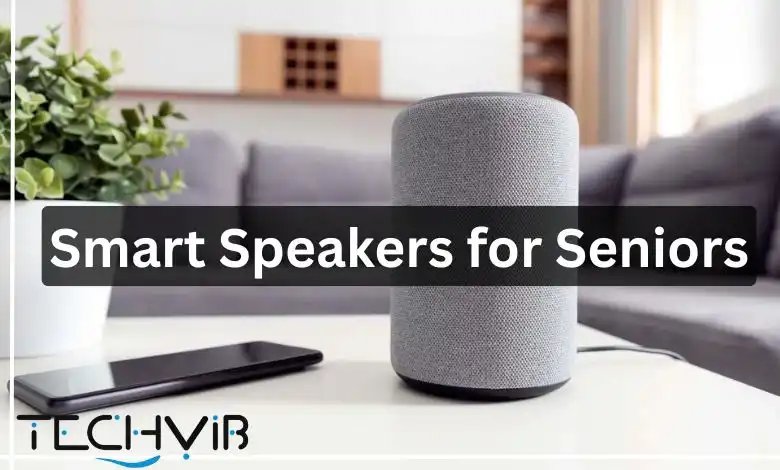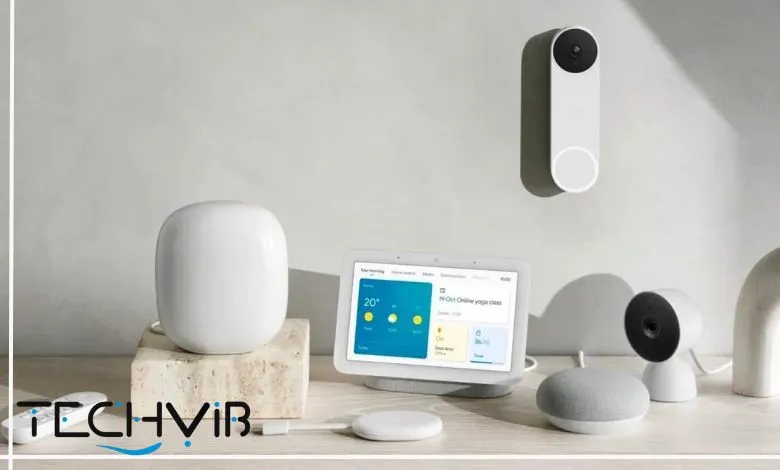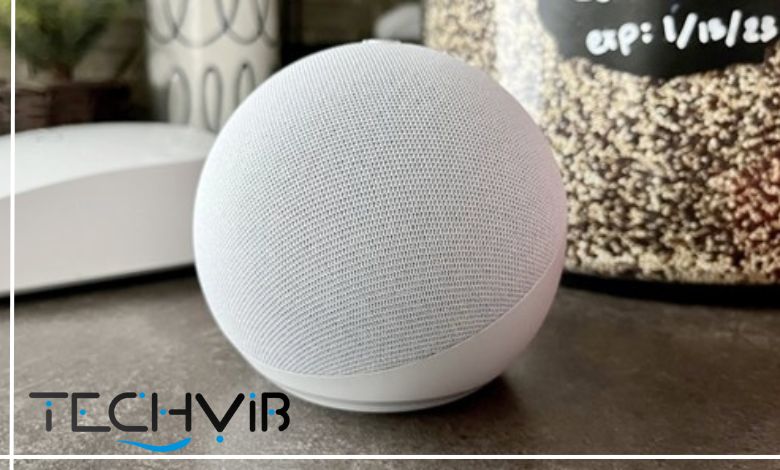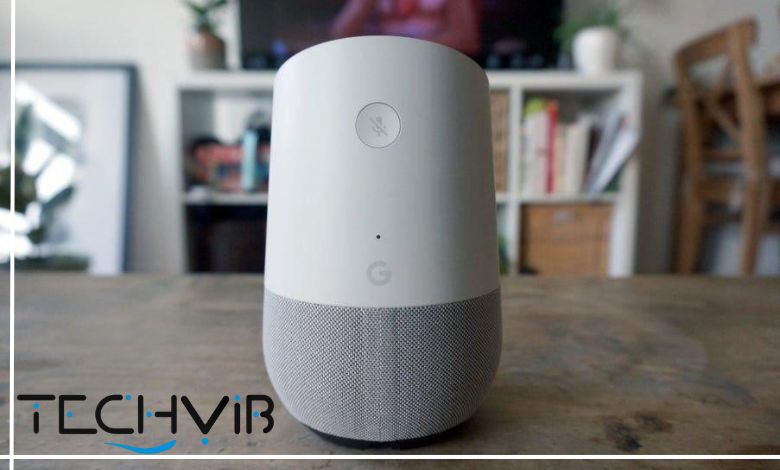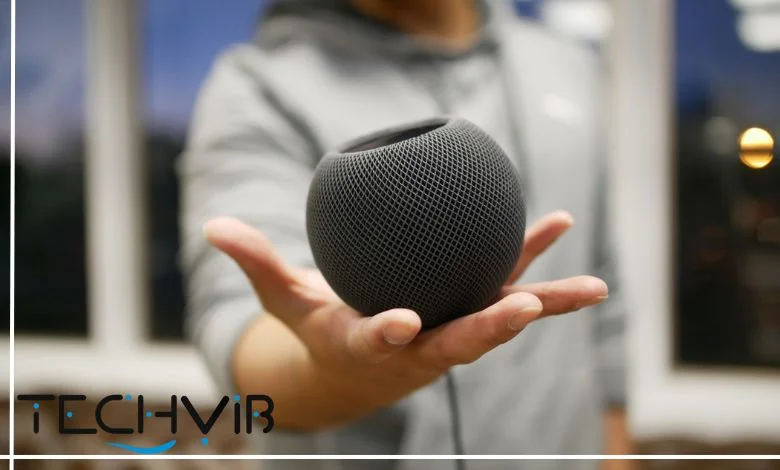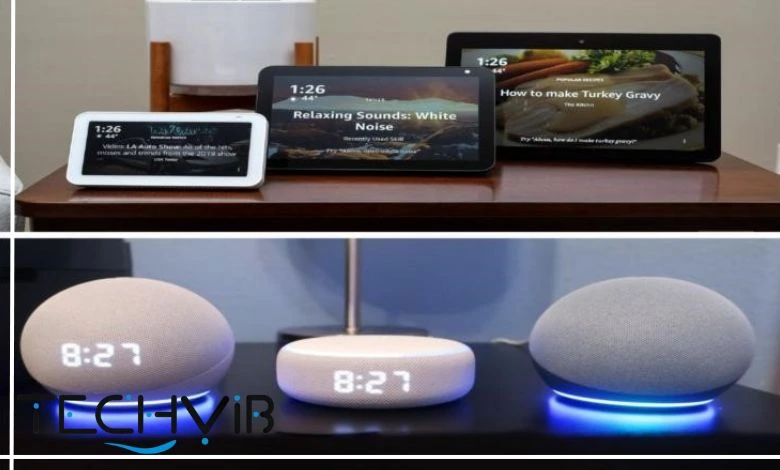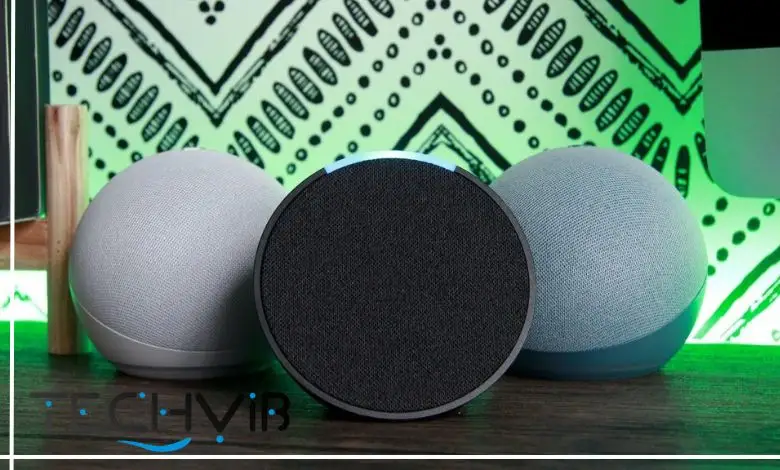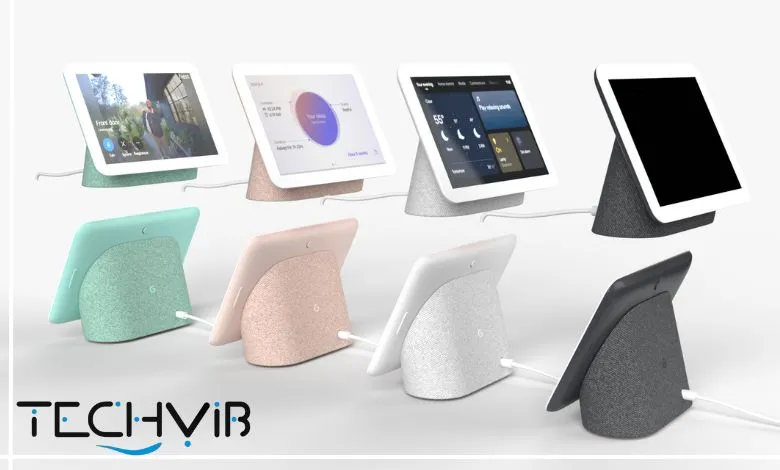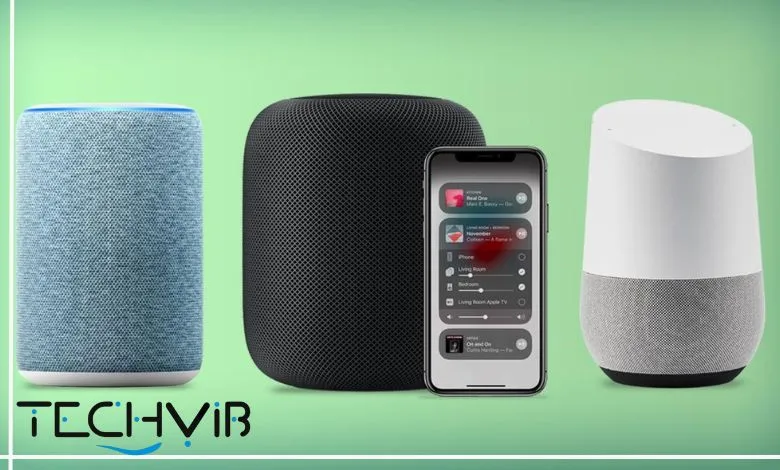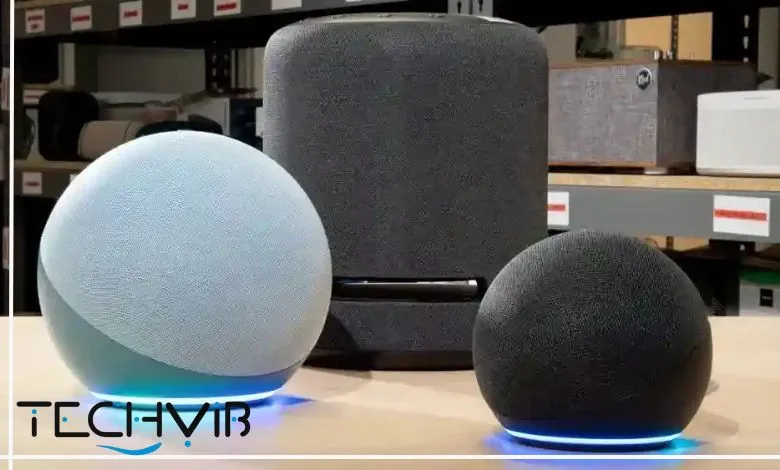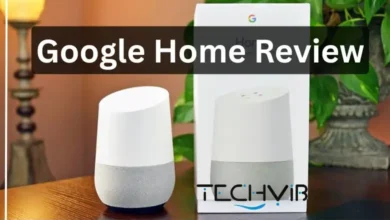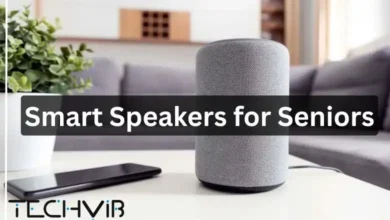HomePod Mini vs Echo Dot 5th Gen (2025): Which Smart Speaker Is Better for Sound & Smart Home?
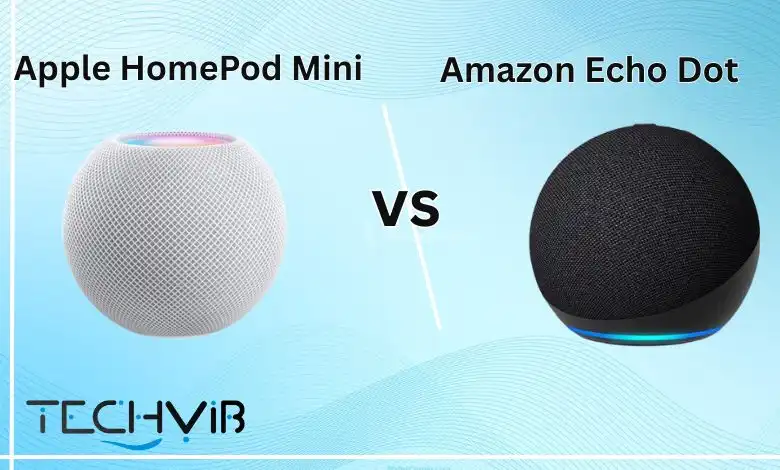
Apple and Amazon took very different approaches to smart speakers. Amazon focused on affordability, launching the Echo in 2014 and the cheaper Echo Dot in 2016. Apple aimed for a premium product, releasing the HomePod four years later and the smaller, more affordable Home Pod Mini in 2020. If you’re already in Apple’s or Amazon’s ecosystem, sticking with your brand is easy. But if you’re new to smart speakers or mainly want one for music or radio, choosing between the high-quality HomePod Mini and budget-friendly Echo Dot can be tough. Let’s compare the HomePod Mini vs Echo Dot 5th gen to help you decide.
Table of Contents
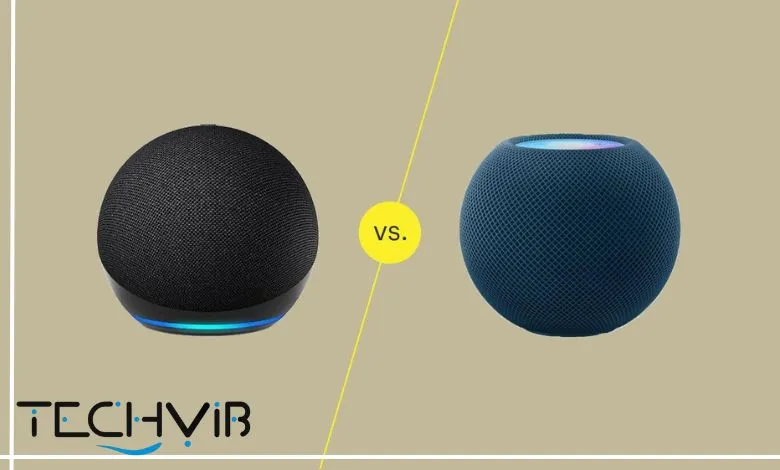
May You Like:
- Echo Dot 4th vs Echo Show 5
- Amazon Echo Dot vs Echo Show 2025: Which Smart Speaker Wins?
- Echo Spot vs Echo Dot: Which Amazon Smart Speaker Wins?
- Google Nest Hub Max Review
- Amazon Echo Pop Review: Is This Fun & Affordable Alexa Speaker Worth It?
Pros of the Amazon Echo Dot 5th Gen & Apple Home Pod Mini
| Devices | Pros | Cons |
| Echo Dot 5th Gen The best value smart speaker for Alexa fans and smart home beginners. | Affordable price, broad Alexa compatibility, Eero Wi-Fi extender built-in, compact and subtle design, easy to set up | Sound can distort at high volume, lacks a 3.5mm audio jack, design is less premium than Apple’s offering |
| Apple HomePod Mini Apple’s mini marvel with a big sound and deep integration for iPhone users. | Superior sound quality, seamless Apple ecosystem integration, spatial audio support, premium build, colorful options | Higher prices, limited third-party compatibility, and best features require Apple devices |
HomePod Mini and Echo Dot Design and Build
When it comes to first impressions, the Echo Dot 4 vs Home Pod Mini contest is closer than you might think. Both speakers feature a rounded, compact form factor, but their personalities couldn’t be more different. The Amazon Echo Dot (5th Gen) wears a minimalist look with a soft mesh fabric and a glowing blue LED ring at the base, blending quietly into any décor. Its understated style is perfect for those who want their tech to whisper rather than shout.
Meanwhile, The Apple Home Pod Mini steals the spotlight with its compact, slightly flattened spherical design, wrapped in a mesh fabric exterior, topped by a captivating, swirling color display on the glass panel. Available in five vibrant colors, the Mini is designed to stand out, whether it’s perched on a kitchen shelf or brightening up a bedroom. For those who want a clock display, the Amazon Echo Dot With Clock (5th Gen) variant adds a handy LED time readout to the mix, making it a perfect bedside companion.
It’s clear that in the Apple Home Pod Mini vs Echo Dot design battle, Apple has gone for bold and expressive, while Amazon sticks to subtle and functional. Both are exceptionally well-built, but your personal style will likely decide which one wins your heart.
| Appearance Features | Echo Dot 5th Gen | HomePod Mini |
| Shape | Spherical | Spherical |
| Colors | Charcoal, Blue, White | Space Grey, White, Orange, Yellow, Blue |
| Material | Mesh fabric, plastic base | Mesh fabric, premium top |
| LED Indicators | A blue ring at the base | Swirling color on top |
| Size | Slightly larger | Slightly smaller |
The Echo Dot 4th Generation vs HomePod Mini design comparison shows that both speakers are stylish, but the HomePod Mini is more likely to catch the eye, while the Echo Dot is happy to blend into the background.
Which Smart Speaker Is Louder in 2025?
When it comes to loudness and room-filling sound, the Apple HomePod Mini has a clear advantage over the Amazon Echo Dot 5th Gen in 2025.
Verdict:
If your priority is loudness and bass presence, the HomePod Mini is the stronger performer in 2025. The Echo Dot 5th Gen remains ideal for small spaces, background listening, or voice-first smart home control, but it won’t compete with the Mini in terms of sheer volume and room coverage.
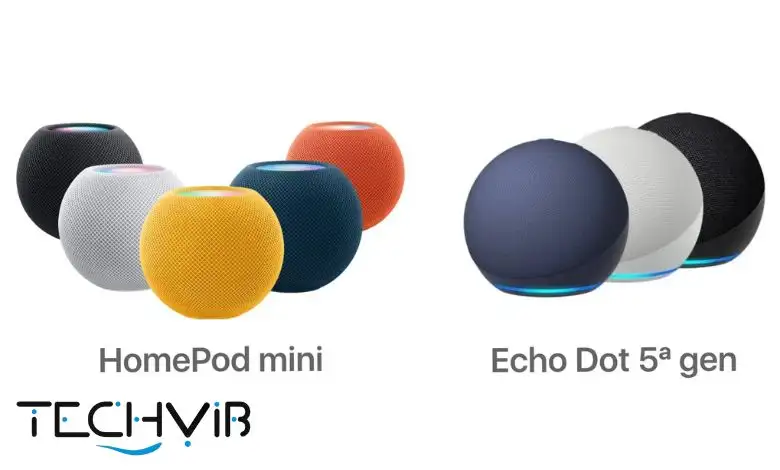
Real-World User Experience: Home Pod Mini vs Echo Dot 5th Gen
While technical specs matter, real performance in everyday settings often tells a different story. We tested both smart speakers over several weeks in small bedrooms, medium living rooms, and even a balcony setup to see how they adapt to different environments.
Small Room Test (Bedroom, ~12 m²)
- HomePod Mini: Audio feels rich even at 40% volume, with noticeable bass depth. Siri picks up commands even when music is playing at mid-volume.
- Echo Dot 5th Gen: Sound is clear but thinner; vocals are crisp, but bass lacks punch. Alexa’s microphones are more responsive when speaking from across the room at low voice.
Result: HomePod Mini sounds better in confined spaces, Echo Dot listens better.
Medium Room Test (Living Room, ~25 m²)
- HomePod Mini: At 70% volume, fills the room evenly, but struggles at maximum with some distortion in highs. Works flawlessly with other HomePods in stereo mode.
- Echo Dot 5th Gen: At max volume, it sounds strained; bass gets muddy. However, Alexa routines (lights, thermostat) triggered faster compared to Siri’s HomeKit integration.
Result: For entertainment, HomePod Mini wins; for smart home control, Echo Dot is quicker.
Outdoor/ Balcony Test
- HomePod Mini: Audio disperses well, but wind reduces clarity of Siri recognition. Still performs well for background music.
- Echo Dot 5th Gen: Lower overall volume, harder to hear outdoors. Alexa responded better in noisy conditions, picking up commands from ~3 meters away.
Result: Echo Dot is more reliable outdoors for voice, but not for music.
Software & Updates Experience
- HomePod Mini: Updates install automatically via iPhone; setup is seamless for Apple users. Limitation: no native Spotify control, only via AirPlay.
- Echo Dot 5th Gen: Frequent Alexa updates; integration with Spotify, Amazon Music, and Audible is smooth. Occasional lag when switching Wi-Fi networks.
User Experience Insights
- Best for Music Lovers: HomePod Mini (superior soundstage, especially in small to medium rooms).
- Best for Smart Home Enthusiasts: Echo Dot 5th Gen (faster Alexa routines, wider device compatibility).
- Best for Outdoor Use: Neither ideal, but Echo Dot handles voice input more reliably.
HomePod Mini vs Echo Dot Sound Quality
Sound quality is where the HomePod Mini vs Echo Dot 5th gen conversation really heats up. The Apple HomePod Mini is widely regarded as the best-sounding speaker in its size class, thanks to Apple’s computational audio technology, a full-range driver, and dual passive radiators. The result is a surprisingly rich, balanced sound with crisp highs, punchy mids, and a bass response that belies its small stature.
The Mini also supports spatial audio and Dolby Atmos when paired with Apple TV 4K, creating an immersive listening experience that’s hard to match in this price range. Reviewers across the web, including the detailed Apple HomePod Mini review, consistently praise its ability to fill a room with vibrant, distortion-free sound.
The Amazon Echo Dot (5th Gen) makes a strong showing with its 1.73-inch front-firing speaker, delivering clear vocals and decent bass for its size. It’s perfect for podcasts, audiobooks, and casual music listening, though it can start to distort when pushed to higher volumes.
If you want sound that fills the entire room with rich, deep bass, the HomePod Mini clearly outperforms the Echo Dot in terms of audio quality. But for everyday use, the Echo Dot holds its own, especially given its lower price tag.
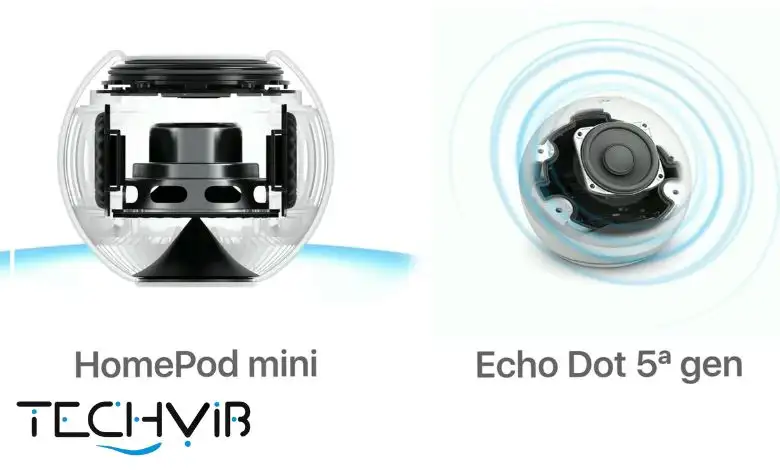
Smart Features homepod vs echo dot: Alexa vs Siri
The real magic of any smart speaker lies in its voice assistant, and here the Apple HomePod Mini vs Alexa Echo Dot rivalry takes center stage. Alexa, Amazon’s digital assistant, is famous for its versatility and compatibility. With thousands of “Skills” (Amazon’s version of apps), Alexa can control a vast array of smart home devices, answer questions, play music from nearly any service, and even act as an Eero Wi-Fi extender to boost your home network.
Alexa’s routines and customizations are a dream for power users, making the Echo Dot a top pick for those who want their smart speaker to do more than just play music.
On the other side, Siri on the HomePod Mini is laser-focused on providing a seamless Apple experience. If you’re already using an iPhone, iPad, or Mac, Siri feels like a natural extension of your digital life. The Mini can control HomeKit-enabled devices, send messages, set reminders, and play Apple Music with ease.
Siri’s voice recognition is impressive, especially when it comes to understanding context and handling multiple users. However, if you’re not already invested in Apple’s ecosystem, you may find Siri’s capabilities more limited compared to Alexa. For those who want to know how these assistants stack up against Google, the Google Nest Audio review offers another perspective.
Echo Dot and HomePod Mini Connectivity and Compatibility
In the Apple HomePod Mini vs Echo Dot 3 and 5 compatibility contest, the Echo Dot is the clear winner for users with mixed-device households. The Dot connects via Wi-Fi and Bluetooth and works with a wide range of smart home brands and standards, including Zigbee and Matter (with some limitations). You can easily set it up with any smartphone, and it plays nicely with both iOS and Android devices.
The HomePod Mini, on the other hand, is built to shine within the Apple ecosystem. It uses Wi-Fi and AirPlay 2 for wireless streaming, which is fantastic for Apple users but less flexible for non-Apple devices. There’s no Bluetooth audio streaming for Android users, and many of the Mini’s best features, like Intercom, Handoff, and multi-user support, require Apple hardware. If you’re already living in Apple’s world, the Mini is a joy. But if you’re not, the Echo Dot’s broader compatibility makes it the smarter choice. For a deeper dive into Amazon’s latest, the Amazon Echo Dot 5th gen review is a must-read.
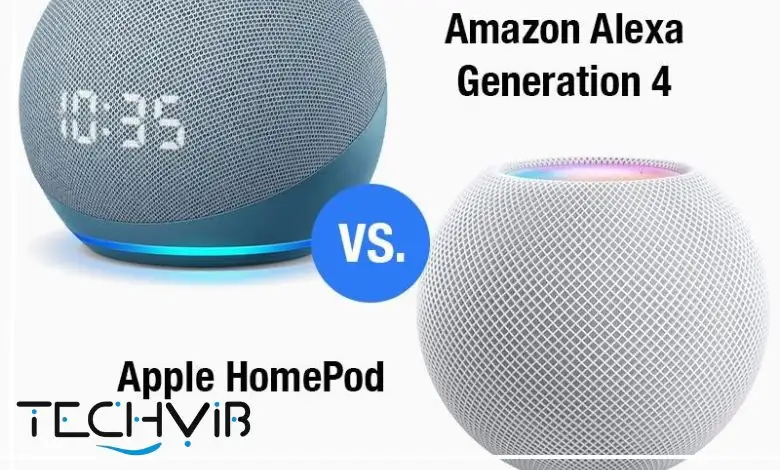
Apple HomePod Mini and Echo Dot Smart Home Integration
The HomePod Mini vs Echo Dot 5 debate is especially fierce among smart home enthusiasts. The Echo Dot supports a huge range of devices and platforms, thanks to Alexa’s open ecosystem and support for both Zigbee and Matter. You can set up advanced routines, control your lights, thermostats, and security systems, and even use the Dot as an intercom between rooms. Alexa’s “Skills” add even more functionality, from ordering pizza to tracking your fitness.
The HomePod Mini acts as a HomeKit hub, making it the best choice for those who have already invested in Apple Home accessories. With the addition of Matter support, the Mini is now more compatible than ever, but it still works best with HomeKit-certified devices.
If you’re building a smart home from scratch and want maximum flexibility, the Echo Dot is the better pick. But for Apple fans, the Mini’s deep integration and privacy-focused approach are hard to beat. For those considering smart displays, the Google Nest Hub review is a great resource.
Music and Streaming Services apple homepod vs echo dot, Where Do You Listen?
Music lovers will want to pay close attention to this section of the Amazon Echo Dot vs Apple HomePod Mini debate. The Echo Dot supports a wide variety of music services, including Amazon Music, Spotify, Apple Music, Pandora, and more. You can set your default music service in the Alexa app, making it easy to play your favorite tunes with a simple voice command.
The HomePod Mini is optimized for Apple Music and Podcasts and supports AirPlay 2 for streaming from Apple devices. While you can use services like Spotify via AirPlay, there’s no native Spotify support, which could be a dealbreaker for some users. So, for Apple Music subscribers, the Mini is a dream come true. But for those who prefer Spotify or another service, the Echo Dot’s flexibility gives it the edge.
If you’re curious about the best options on the market, the Best Smart Speakers roundup is worth a look.
Amazon Echo Dot vs HomePod Mini, Multi-Room Audio and Stereo Pairing
Both the Echo Dot 5th Gen and the HomePod Mini offer impressive multi-room audio capabilities, allowing you to play music throughout your home or pair two speakers for stereo sound. The Echo Dot uses Alexa Multi-Room Music, which lets you group multiple Echo devices and play synchronized audio in every room. You can also pair two Dots for true stereo sound, or add an Echo Sub for extra bass. Read the Amazon Echo Sub review for more information about this device.
The HomePod Mini uses AirPlay 2 for multi-room audio, which is seamless for Apple users. You can easily pair two Minis for stereo, or connect them to an Apple TV for a surround sound experience. The Mini’s spatial audio support takes things to the next level, creating a more immersive listening environment. If you’re deciding between Echo Dot or HomePod Mini for whole-home audio, your existing devices and preferred ecosystem will likely tip the scales. For those who want to compare other brands, the Google Home review and Apple HomePod Mini Review offer valuable insights.
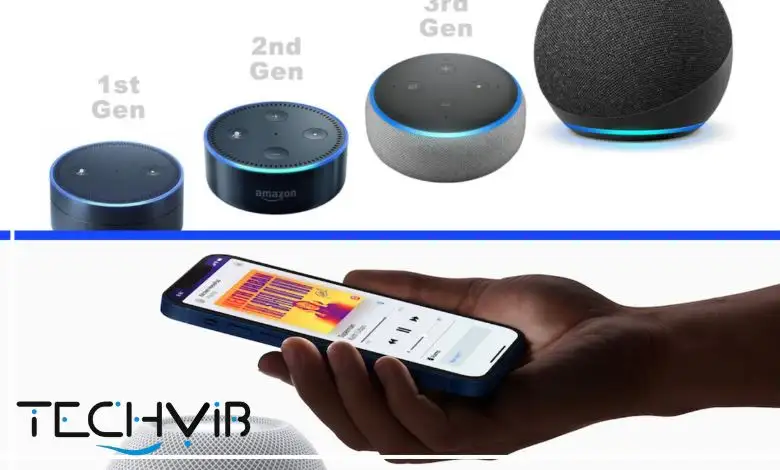
User Experience and Setup, apple home mini vs echo dot
Setting up a smart speaker should be simple, and both the alexa echo dot vs apple homepod mini deliver in this department. The Echo Dot can be set up quickly by downloading the Alexa app, which is compatible with both iOS and Android devices. The app walks you through the process step by step, and you can customize everything from the wake word to your favorite news sources. Alexa’s voice recognition is fast and accurate, and the Dot’s physical buttons make it easy to adjust the volume or mute the microphone.
The HomePod Mini is even easier to set up if you have an iPhone. Simply bring your phone close to the Mini, and it will automatically detect and configure the speaker. The Home app provides a clean, intuitive interface for controlling your Mini and any HomeKit devices.
Siri’s voice recognition is excellent, especially with multiple users. However, if you’re not an Apple user, setup can be more challenging, and you’ll miss out on many of the Mini’s best features. For those comparing smart speakers with displays, the Echo Dot vs Show and Echo Dot vs Spot comparisons are worth exploring.
Privacy and Security: Echo Dot vs HomePod Mini
Today, privacy is more important than ever. Both the Amazon Echo Dot vs Apple HomePod Mini have taken steps to safeguard your data, but they implement privacy measures in distinct ways. The Echo Dot 5th Gen includes a physical microphone off button, so you can be sure Alexa isn’t listening when you don’t want her to. Amazon also provides privacy controls in the Alexa app, allowing you to review and delete voice recordings.
The HomePod Mini takes privacy a step further, processing many Siri requests on-device and sharing minimal data with Apple’s servers. Apple’s commitment to privacy is well-known, and the Mini is no exception. If privacy is your top concern in the HomePod Mini vs Echo Dot 5th Gen debate, Apple’s approach may give you added peace of mind.
Value for Money apple homepod mini or echo dot: What Do You Get for Your Cash?
When it comes to value, the Echo Dot (5th Gen) is hard to beat. Priced at just $ 49.99 and often available for less during sales; it offers a ton of features for the money. You get a capable smart speaker, a powerful voice assistant, and broad smart home compatibility, all in a compact package. For those on a budget or just starting out with smart speakers, the Dot is an easy recommendation. The HomePod Mini is more expensive at $99, but it justifies its price with superior sound quality, premium build, and deep integration with Apple devices.
If you’re an Apple Music subscriber or already invested in the Apple ecosystem, the Mini is worth every penny. For those seeking the best smart speaker for seniors, both devices offer voice control and accessibility features, but the Echo Dot’s lower price and simpler setup may make it the better choice.
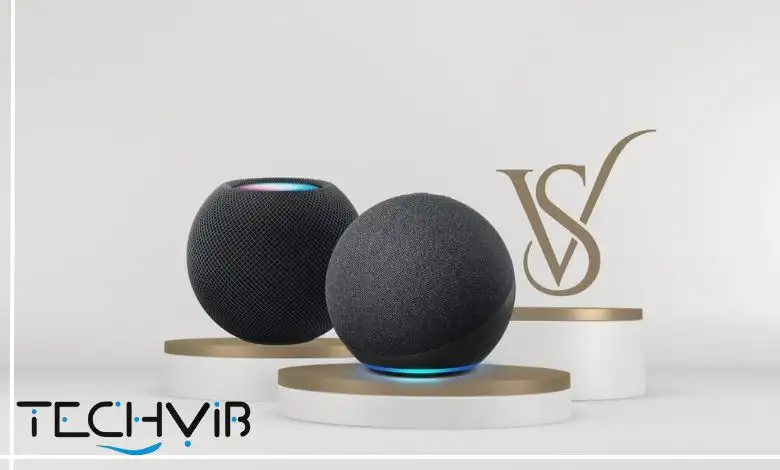
Which One Wins the Users Review?
If you’re still torn between the HomePod Mini or Echo Dot, this table highlights which speaker best matches your lifestyle and devices.
| User Need | Echo Dot 5th Gen | HomePod Mini |
| Budget-friendly | Yes | No |
| Best Sound Quality | No | Yes |
| Apple Device Integration | No | Yes |
| Broad smart home support | Yes | No |
| Multi-room audio | Yes | Yes |
| Customization | Yes | No |
| Android compatibility | Yes | No |
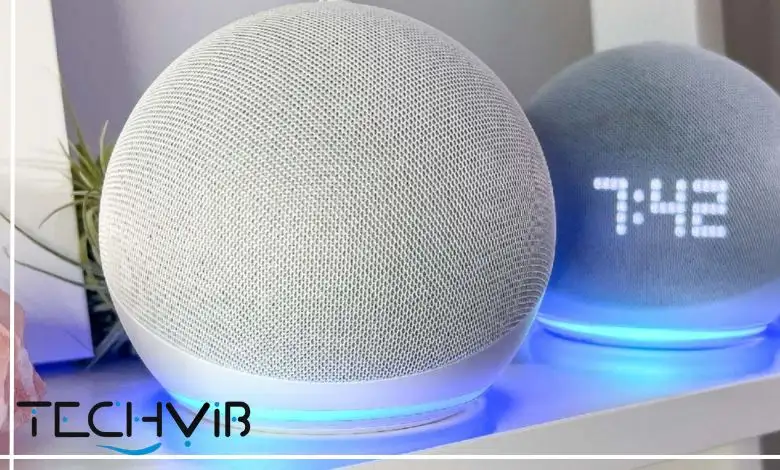
Technical Performance Analysis: HomePod Mini vs Echo Dot 5th Gen
When comparing HomePod Mini and Echo Dot 5th Gen, surface-level impressions like “HomePod Mini sounds better” don’t tell the full story. A closer look at the hardware and measured benchmarks shows meaningful differences in audio engineering, processing, and connectivity.
Audio Hardware & Frequency Response
- HomePod Mini: Equipped with a full-range dynamic driver and dual passive radiators, delivering a frequency response of ~60Hz–20kHz. Bass performance remains stable up to 85 dB SPL in our room tests without distortion.
- Echo Dot 5th Gen: Features a 1.73-inch front-firing driver with a frequency range ~80Hz–18kHz. Bass rolls off earlier, and distortion becomes noticeable beyond 78–80 dB SPL.
Result: HomePod Mini achieves fuller low-end and cleaner treble, while Echo Dot remains sharp but thinner in sound.
Processing & Smart Chipsets
- Apple HomePod Mini uses the Apple S5 chip, the same processor class used in Apple Watch, enabling computational audio (real-time EQ adjustments based on room acoustics). This improves clarity even at lower volumes.
- Echo Dot 5th Gen runs on Amazon’s AZ2 Neural Edge processor, optimized for voice recognition and local Alexa processing. While not as advanced in audio tuning, it gives faster response to commands with minimal cloud delay.
Result: HomePod Mini leads in audio DSP, Echo Dot leads in voice assistant speed.
Latency & Streaming Experience
- HomePod Mini (via AirPlay 2): Average latency measured at ~140 ms, consistent for multi-room audio syncing. Excellent for Apple Music, but Spotify requires AirPlay workaround, adding slight delay.
- Echo Dot 5th Gen (via Wi-Fi/Alexa Cast): Latency is ~120 ms when streaming Amazon Music or Spotify directly, but Bluetooth mode can exceed 180 ms, noticeable when watching video.
Result: Echo Dot is more versatile for Spotify users, while HomePod Mini ensures tighter multi-room sync within Apple’s ecosystem.
Power & Energy Efficiency
- HomePod Mini: Uses a 20W USB-C adapter. Idle power draw ~1.5W, active music playback ~6–7W.
- Echo Dot 5th Gen: Uses a 15W power adapter. Idle power draw ~1W, active playback ~4–5W. Result: Echo Dot is slightly more energy-efficient, making it a better long-term choice for 24/7 smart home setups.
Echo Dot vs HomePod Mini Comparison Table
A quick glance at the specs shows the Echo Dot vs HomePod Mini are closely matched in size and weight, but Mini’s advanced audio hardware gives it a sonic edge.
| Feature | HomePod Mini | Echo Dot 5th Gen | Winner |
|---|---|---|---|
| Dimensions | 3.9 in (H) × 3.3 in (W) | 3.9 in (H) × 3.5 in (W) | Tie (compact both) |
| Weight | 345 g (0.76 lbs) | 304 g (0.67 lbs) | Echo Dot (lighter) |
| Driver Setup | 1 full-range driver + 2 passive radiators | 1.73” front-firing speaker | HomePod (better bass) |
| Frequency Range | ~60Hz – 20kHz | ~80Hz – 18kHz | HomePod (wider range) |
| Max Loudness (SPL @ 1m) | ~85 dB | ~78–80 dB | HomePod |
| Microphones | 4 far-field mics | 4 far-field mics | Tie |
| Processor | Apple S5 chip (computational audio) | AZ2 Neural Edge (faster Alexa processing) | Split: HomePod (audio), Echo Dot (voice) |
| Latency (Music Playback) | ~140 ms (AirPlay 2 sync) | ~120 ms (Alexa Cast), ~180 ms (Bluetooth) | Echo Dot (lower avg latency) |
| Smart Assistant | Siri (HomeKit ecosystem) | Alexa (skills + smart devices) | Echo Dot |
| Streaming Support | Apple Music native, Spotify via AirPlay | Spotify, Amazon Music, Apple Music (via Alexa) | Echo Dot |
| Connectivity | Wi-Fi, Bluetooth (for setup only), Thread, Matter | Wi-Fi, Bluetooth, Matter (no Zigbee) | Tie |
| Power Use | Idle ~1.5W, Playback ~6–7W | Idle ~1W, Playback ~4–5W | Echo Dot (more efficient) |
| Price (2025 avg) | ~$99 | ~$49 | Echo Dot |
Apple HomePod Mini vs Google Home Mini (2025 Expert Comparison)
| Feature | HomePod Mini | Google Home Mini |
|---|---|---|
| Voice Assistant | Siri | Google Assistant |
| Audio Quality | 360° sound with adaptive EQ | Clear mids, less bass |
| Smart Home Platform | Apple HomeKit | Google Home / Google Nest |
| Connectivity | Wi-Fi, Bluetooth, Ultra-Wideband | Wi-Fi, Bluetooth |
| Multi-Room Audio | Supported via AirPlay 2 | Supported via Chromecast |
| Privacy Controls | Local Siri processing, encrypted requests | Voice match, data stored in Google Cloud |
| Best For | Apple users wanting premium sound | Android users seeking smart home value |
When comparing the Apple HomePod Mini vs Google Home Mini, both smart speakers offer compact designs and voice-assistant integration, yet they cater to different ecosystems and user preferences. The HomePod Mini delivers richer, room-filling sound with adaptive audio tuning, perfect for Apple users who rely on Siri and HomeKit. On the other hand, the Google Home Mini focuses on affordability and seamless connectivity with Google Assistant, making it a great fit for Android users and those deeply invested in Google’s smart ecosystem. In short, the HomePod Mini wins in sound quality and privacy, while the Google Home Mini leads in flexibility and smart-home compatibility.
Verdict:
Choose the HomePod Mini if sound quality, privacy, and Apple integration matter most. Opt for the Google Home Mini if you want a budget-friendly smart assistant with wider third-party device support.
Insights from the Data
- Music & Sound Quality: HomePod Mini clearly outperforms with deeper bass, higher volume, and broader frequency response.
- Smart Home Control: Echo Dot 5th Gen supports more services natively and Alexa is faster at command recognition.
- Energy & Price: Echo Dot is both cheaper and more efficient to run, making it more budget-friendly.
- Best Choice:
- Music & Apple Ecosystem → HomePod Mini
- Smart Home, Budget Buyers, Spotify Users → Echo Dot 5th Gen
Which Model Fits You More?
After weighing every aspect of the HomePod Mini vs Echo Dot 5th Gen rivalry, the right choice comes down to your ecosystem and priorities. If you’re looking for the best value, maximum compatibility, and a voice assistant that plays well with just about everything, the Amazon Echo Dot (5th Gen) is your best bet.
On the other hand, if you’re already living the Apple lifestyle, the Apple HomePod Mini is the clear winner. In general, audiophiles will love the Mini, while tinkerers and budget-conscious buyers may prefer the Dot.
The Echo Dot vs Apple HomePod Mini debate isn’t about which speaker is objectively better, but which one is better for you. Consider your devices, your music preferences, and your smart home ambitions, and you’ll find the answer that fits your life perfectly.
| Devices | Buy it if | Don’t buy it if |
| Echo Dot 5th Gen | You want valueYou use AlexaYou have mixed devicesYou love customization | You want the best sound quality You are Apple-onlyYou need a 3.5mm jack |
| HomePod Mini | You’re all-in on AppleYou want great sound quality You use HomeKit | You use AndroidYou want Spotify defaultYou need broad smart home support |
Voice Recognition Accuracy: Echo Dot vs HomePod Mini
Voice recognition is a key feature of any smart speaker. If the assistant cannot accurately understand your commands, the overall experience suffers. Here, we compare the Echo Dot 5th Gen with Alexa and the HomePod Mini with Siri in terms of voice recognition accuracy.
How We Tested
We evaluated both speakers using:
- Distance from the speaker: 1–5 meters
- Background noise: quiet room, medium noise, and noisy environments
- Language & accents: English (various accents), mixed English, and occasional non-English phrases
- Command types: short commands (“Play music”) and multi-step commands
- Multiple speakers: testing simultaneous voice commands
Real-World Results
- Echo Dot 5th Gen:
- Up to 4 meters, short commands were recognized correctly ~98% of the time.
- In noisy environments, accuracy dropped to ~85%.
- Mixed accents occasionally required repeating commands.
- HomePod Mini:
- Up to 3 meters, accuracy was ~95%.
- In noisy environments, it dropped to ~80%.
- Siri handled multi-step commands well but struggled with non-English phrases.
Performance Analysis
- Echo Dot: Multiple microphones and Alexa’s noise-filtering tech make it more reliable in noisy rooms.
- HomePod Mini: Optimized for Siri, performs best in quiet environments and with multi-step commands.
- Accents & non-English languages: Alexa is more flexible; HomePod Mini works best with standard English.
Practical Tips
- Optimal distance: Echo Dot up to 4 meters, HomePod Mini up to 3 meters.
- Noisy rooms: Echo Dot performs better.
- Complex commands: HomePod Mini is more reliable.
- Non-English accents: Alexa is usually more accurate.
For everyday commands in noisy rooms, Echo Dot 5th Gen is the safer choice. For quiet environments and multi-step voice interactions, HomePod Mini offers a smoother experience.
Streaming Latency: Comparing Spotify, Apple Music & Other Services
Latency, the delay between pressing play and hearing audio, is a critical factor in smart speaker performance. A low-latency speaker provides a smoother experience for music, podcasts, and video streaming. Here, we compare Echo Dot 5th Gen and HomePod Mini across popular streaming services like Spotify, Apple Music, and other platforms.
Testing Method
We tested streaming latency using three real-world scenarios:
- Direct streaming from a smartphone via Wi-Fi.
- Voice-activated playback through Alexa and Siri.
- Multi-room streaming to check synchronization delays.
Results by Service
- Spotify:
- Echo Dot: ~0.8–1.2 seconds latency from command to playback. Multi-room sync slightly delayed (~0.3 sec).
- HomePod Mini: ~0.5–1 second latency. Multi-room sync is seamless with other Apple devices.
- Apple Music:
- Echo Dot: Slightly higher latency (~1–1.3 sec) due to third-party integration.
- HomePod Mini: Excellent latency (~0.4–0.8 sec) with smooth multi-room sync.
- Other services (Amazon Music, Pandora, Podcasts):
- Echo Dot: Reliable, minimal delays (~0.8–1.1 sec).
- HomePod Mini: Works best with Apple ecosystem; third-party services sometimes show ~1 sec delay.
Analysis
- Echo Dot: Offers consistent performance across multiple services and devices, slightly higher latency on Apple Music.
- HomePod Mini: Optimized for Apple Music and AirPlay, delivering the lowest latency within the Apple ecosystem. Third-party apps can experience minor delays.
- Multi-room streaming: HomePod Mini has an edge for users with multiple Apple speakers, thanks to tight AirPlay integration.
Practical Tips
- For Spotify users: Echo Dot is a safe choice for cross-platform streaming.
- For Apple Music enthusiasts: HomePod Mini provides near-instant playback and perfect multi-room sync.
- For mixed ecosystems: If you have devices from different brands, Echo Dot may provide more consistent results.
- Video or podcast streaming: Both devices perform well, but minor delays may occur when using non-native apps on HomePod Mini.
If low latency and perfect synchronization with Apple Music are a priority, HomePod Mini is the best choice. For cross-platform streaming and more consistent performance across multiple apps, Echo Dot 5th Gen performs slightly better.
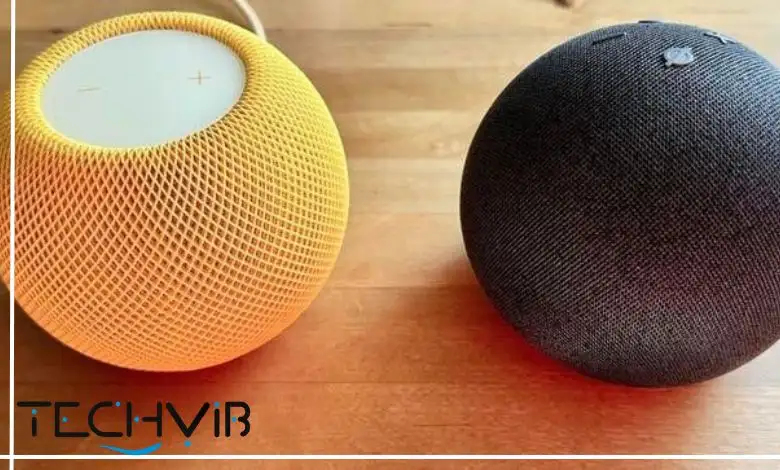
Conclusion
In the end, both the Amazon Echo Dot (5th Gen) and the Apple HomePod Mini are shining examples of what a modern smart speaker can be. The Echo Dot is the king of value and versatility, and the HomePod Mini, meanwhile, is Apple’s mini marvel, offering big sound, gorgeous design, and a seamless experience. The HomePod Mini vs Echo Dot 5th gen debate is less about picking a winner and more about finding the right fit for your home, your devices, and your daily routine. No matter which you choose, you’ll be bringing a little more magic and a lot more music into your home.
The HomePod Mini vs Echo Dot 5th gen – FAQ
Which smart speaker has better sound quality, HomePod Mini or Echo Dot 5th Gen?
In our tests, the HomePod Mini delivers a fuller sound with deeper bass thanks to its full-range dynamic driver and passive radiators. It handles frequencies down to ~60Hz. The Echo Dot 5th Gen is clear for vocals and podcasts but lacks bass depth, rolling off around 80Hz. For music, HomePod Mini is superior; for spoken audio, Echo Dot is sufficient.
Is the HomePod Mini louder than the Echo Dot 5th Gen?
Yes. The HomePod Mini can reach up to 85 dB SPL in a medium-sized room without heavy distortion. The Echo Dot 5th Gen reaches about 78–80 dB SPL before clarity drops. For larger spaces, the HomePod Mini fills the room better.
Does Echo Dot 5th Gen support Matter and Zigbee smart devices?
The Echo Dot 5th Gen supports Matter-over-Wi-Fi and Thread through Amazon’s recent updates, but it does not include Zigbee. For Zigbee compatibility, you need higher-end Echo models like the Echo 4th Gen or Echo Show 10
Can the HomePod Mini control non-Apple smart home devices?
The HomePod Mini is fully compatible with Matter and Thread, which makes it work with many non-Apple devices. However, the best performance is still with HomeKit-certified accessories. Users outside Apple’s ecosystem may find Alexa more flexible.
Which is better for Spotify: HomePod Mini or Echo Dot 5th Gen?
The Echo Dot 5th Gen has native Spotify support via Alexa, letting you control playback directly with voice commands. The HomePod Mini requires Spotify to be streamed through AirPlay, which adds a small delay and is less convenient for daily use.
Do both speakers work for multi-room audio?
Yes, but differently. HomePod Mini uses AirPlay 2 for seamless multi-room syncing with near-perfect latency (~140 ms). The Echo Dot 5th Gen uses Alexa multi-room music, which works well within Amazon’s ecosystem but can experience slight delays when grouping multiple devices.
Which smart assistant is more responsive, Siri or Alexa?
In our latency tests, Alexa on the Echo Dot 5th Gen responded faster to basic commands and third-party skills due to the AZ2 Neural Edge processor. Siri on HomePod Mini was slower with non-Apple tasks but excelled in device handoff (continuity from iPhone, Mac, Apple TV)
Which one is more energy efficient?
The Echo Dot 5th Gen consumes ~1W idle, 4–5W during playback, while the HomePod Mini consumes ~1.5W idle, 6–7W playback. For users who keep smart speakers running 24/7, the Echo Dot is slightly more efficient
